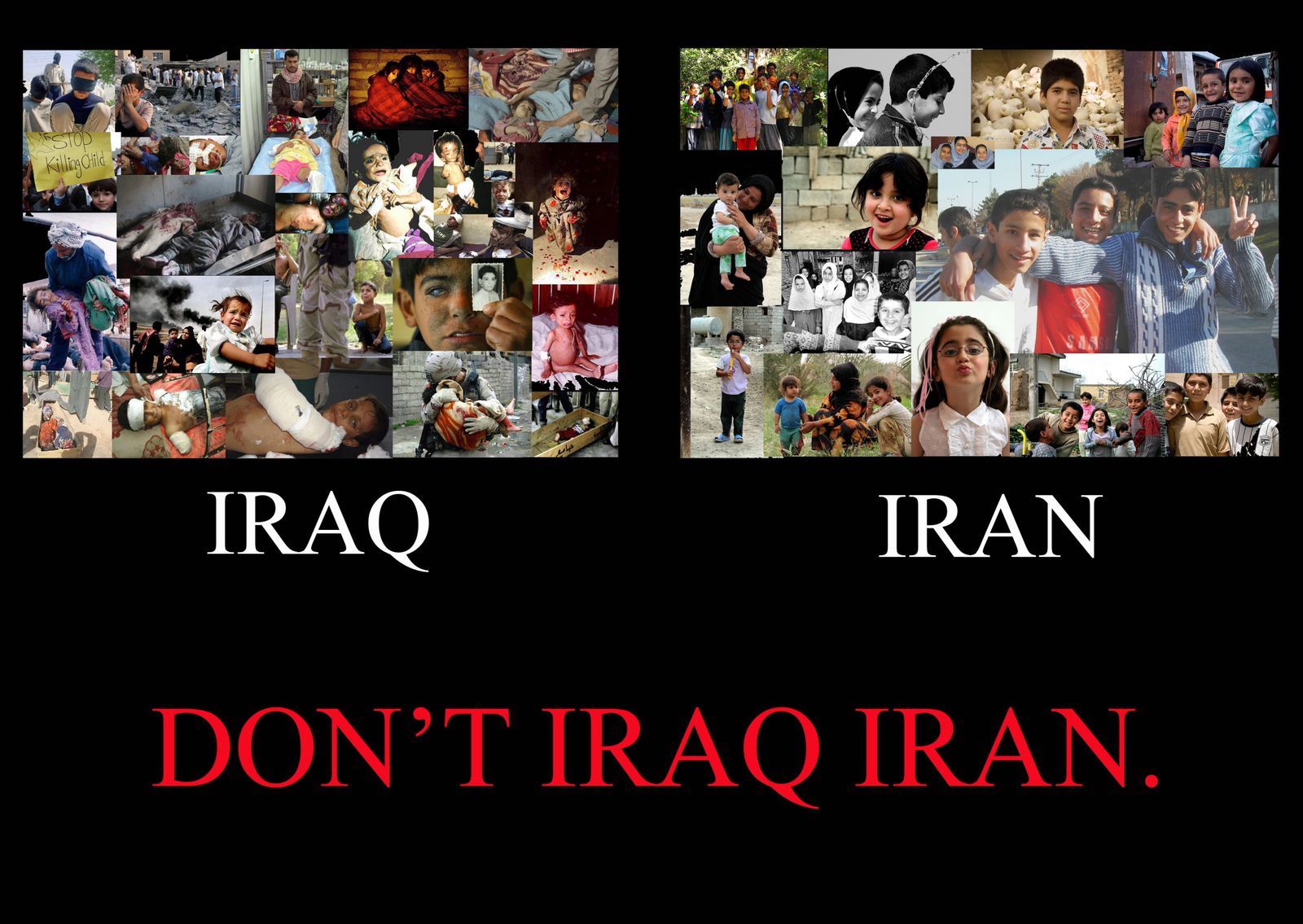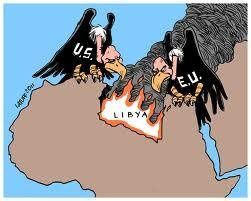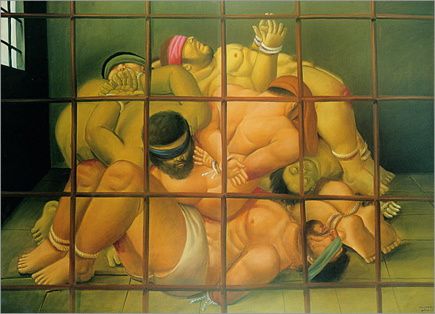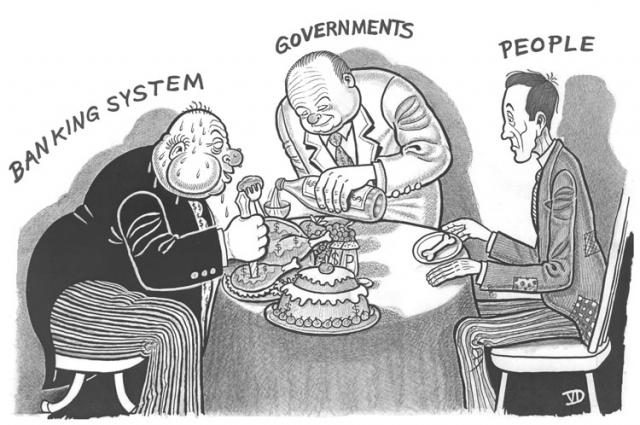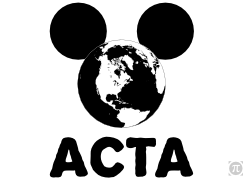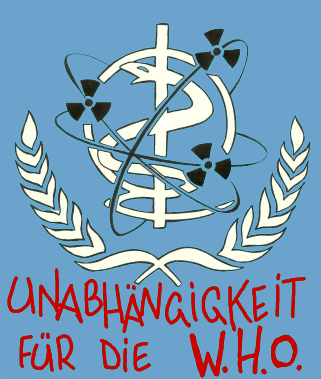internationalnews
July 27, 2009
Following meetings with top Israeli officials, Secretary of Defense Robert Gates said the US would seek tough new sanctions against the Iranian government if it rejected the US offer for talks.
Gates vowed that such measures would not be incremental.

Though Israeli Defense Minister Ehud Barak used the meeting as an opportunity to again hint at military action against Iran, Gates said, however, that he “had every sense that the Israeli government is prepared to let our strategy play out.”
Gates’ comments appeared to be more intended to placate Israeli impatience over the Obama Administration’s attempts at diplomacy with Iran, though he did warn that the offer for talks was not “open-ended.” Last week Israel condemned comments by Secretary of State Hillary Clinton, saying they suggested the US was resigned to Iran having nuclear weapons.
Despite US and Israeli officials’ persistant threats over Iran’s alleged nuclear weapons program, Yukiya Amano, the new head of the International Atomic Energy Agency, says there is no evidence the nation is even working on such weapons.
Ehud Barak warns Iran of possible Israeli strike on nuclear facilities
- West Offering to Endorse Israeli Attack on Iran as Part of Settlement Deal
- Israeli FM: US Will Accept Any Israeli Decision
- Clinton Threatens to Attack Iran ‘The Way That We Did’ Iraq
- July 22, 2009 -- Clinton Vows ‘Crippling Action’ if Iran Becomes Nuclear
- July 9, 2009 -- Netanyahu Adviser Hints at Need for Even Bigger Nuclear Arsenal
- July 7, 2009 -- Obama Denies ‘Green Light’ for Israeli Attack on Iran
Article printed from News From Antiwar.com: http://news.antiwar.com
URL to article: http://news.antiwar.com/2009/07/27/gates-threatens-tough-sanctions-against-iran/
CounterPunch
July 20, 2009
When Japan attacked Pearl Harbor, Japan did not spend years preparing her public case and demonstrating her deployment of forces for the attack. Japan did not make a world issue out of her view that the US was denying Japan her role in the Pacific by hindering Japan’s access to raw materials and energy.
Similarly, when Hitler attacked Russia, he did not preface his invasion with endless threats and a public case that blamed the war on England.
These events happened before the PSYOPS era. Today, America and Israel’s wars of aggression are preceded by years of propaganda and international meetings, so that by the time the attack comes it is an expected event, not a monstrous surprise attack with its connotation of naked aggression.
The US, which has been threatening Iran with attack for years, has passed the job to Israel. During the third week of July, the American vice president and secretary of state gave Israel the go-ahead. Israel has made great public disclosure of its warships passing through the Suez Canal on their way to Iran. “Muslim” Egypt is complicit, offering no objection to Israel’s naval forces on their way to a war crime under the Nuremberg standard that the US imposed on the world.
By the time the attack occurs, it will be old hat, an expected event, and, moreover, an event justified by years of propaganda asserting Iran’s perfidy.
Israel intends to dominate the Middle East. Israel’s goal is to incorporate all of Palestine and southern Lebanon into “Greater Israel.” The US intends to dominate the entire world, deciding who rules which countries and controlling resource flows.
The US and Israel are likely to succeed, because they have effective PSYOPS. For the most part, the world media follows the US media, which follows the US and Israeli governments’ lines. Indeed, the American media is part of the PSYOPS of both countries.
According to Thierry Meyssan in the Swiss newspaper Zeit-Fragen, the CIA used SMS or text messaging and Twitter to spread disinformation about the Iranian election, including the false report that the Guardian Council had informed Mousavi that he had won the election. When the real results were announced, Ahmadinejad’s reelection appeared to be fraudulent.
Iran’s fate awaits it. A reasonable hypothesis to be entertained and examined is whether Iran’s Rafsanjani and Mousavi are in league with Washington to gain power in Iran. Both have lost out in the competition for government power in Iran. Yet, both are egotistical and ambitious. The Iranian Revolution of 1979 probably means nothing to them except an opportunity for personal power. The way the West has always controlled the Middle East is by purchasing the politicians who are out of power and backing them in overthrowing the independent government. We see this today in Sudan as well.
In the case of Iran, there is an additional factor that might align Rafsanjani with Washington. President Ahmadienijad attacked former President Rafsanjani, one of Iran’s most wealthy persons, as corrupt. If Rafsanjani feels threatened by this attack, he has little choice but to try to overthrow the existing government. This makes him the perfect person for Washington.
Perhaps there is a better explanation why Rafsanjani and Mousavi, two highly placed members of the Iranian elite, chose to persist in allegations of election fraud that have played into Washington’s hands by calling into question the legitimacy of the Iranian government. It cannot be that the office of president is worth such costs as the Iranian presidency is not endowed with decisive powers.
Without Rafsanjani and Mousavi, the US media could not have orchestrated the Iranian elections as “stolen,” an orchestration that the US government used to further isolate and discredit the Iranian government, making it easier for Iran to be attacked. Normally, well placed members of an elite do not help foreign enemies set their country up for attack.
An Israeli attack on Iran is likely to produce retaliation, which Washington will use to enter the conflict. Have the personal ambitions of Rafsanjani and Mousavi, and the naive youthful upper class Iranian protesters, set Iran up for destruction?
Consult a map and you will see that Iran is surrounded by a dozen countries that host US military bases. Why does anyone in Iran doubt that Iran is on her way to becoming another Iraq, Afghanistan, and Pakistan, in the end to be ruled by oil companies and an American puppet?
The Russians and Chinese are off balance because of successful American interventions in their spheres of influence, uncertain of the threat and the response. Russia could have prevented the coming attack on Iran, but, pressured by Washington, Russia has not delivered the missile systems that Iran purchased. China suffers from her own hubris as a rising economic power, and is about to lose her energy investments in Iran to US/Israeli aggression. China is funding America’s wars of aggression with loans, and Russia is even helping the US to set up a puppet state in Afghanistan, thus opening up former Soviet central Asia to US hegemony.
The world is so impotent that even the bankrupt US can launch a new war of aggression and have it accepted as a glorious act of liberation in behalf of women’s rights, peace, and democracy.
Paul Craig Roberts was Assistant Secretary of the Treasury in the Reagan administration. He is coauthor of The Tyranny of Good Intentions. He can be reached at: PaulCraigRoberts@yahoo.com
http://www.counterpunch.org/roberts07202009.html
A number of commentators have expressed their idealistic belief in the purity of Mousavi, Montazeri, and the westernized youth of Terhan. The CIA destabilization plan, announced two years ago (see below) has somehow not contaminated unfolding events.
The claim is made that Ahmadinejad stole the election, because the outcome was declared too soon after the polls closed for all the votes to have been counted. However, Mousavi declared his victory several hours before the polls closed. This is classic CIA destabilization designed to discredit a contrary outcome. It forces an early declaration of the vote. The longer the time interval between the preemptive declaration of victory and the announcement of the vote tally, the longer Mousavi has to create the impression that the authorities are using the time to fix the vote. It is amazing that people don’t see through this trick.
As for the grand ayatollah Montazeri’s charge that the election was stolen, he was the initial choice to succeed Khomeini, but lost out to the current Supreme Leader. He sees in the protests an opportunity to settle the score with Khamenei. Montazeri has the incentive to challenge the election whether or not he is being manipulated by the CIA, which has a successful history of manipulating disgruntled politicians.
There is a power struggle among the ayatollahs. Many are aligned against Ahmadinejad because he accuses them of corruption, thus playing to the Iranian countryside where Iranians believe the ayatollahs' lifestyles indicate an excess of power and money. In my opinion, Ahmadinejad's attack on the ayatollahs is opportunistic. However, it does make it odd for his American detractors to say he is a conservative reactionary lined up with the ayatollahs.
Commentators are "explaining" the Iran elections based on their own illusions, delusions, emotions, and vested interests. Whether or not the poll results predicting Ahmadinejad's win are sound, there is, so far, no evidence beyond surmise that the election was stolen. However, there are credible reports that the CIA has been working for two years to destabilize the Iranian government.
On May 23, 2007, Brian Ross and Richard Esposito reported on ABC News: “The CIA has received secret presidential approval to mount a covert “black” operation to destabilize the Iranian government, current and former officials in the intelligence community tell ABC News.”
On May 27, 2007, the London Telegraph independently reported: “Mr. Bush has signed an official document endorsing CIA plans for a propaganda and disinformation campaign intended to destabilize, and eventually topple, the theocratic rule of the mullahs.”
A few days previously, the Telegraph reported on May 16, 2007, that Bush administration neocon warmonger John Bolton told the Telegraph that a US military attack on Iran would “be a ‘last option’ after economic sanctions and attempts to foment a popular revolution had failed.”
On June 29, 2008, Seymour Hersh reported in the New Yorker: “Late last year, Congress agreed to a request from President Bush to fund a major escalation of covert operations against Iran, according to current and former military, intelligence, and congressional sources. These operations, for which the President sought up to four hundred million dollars, were described in a Presidential Finding signed by Bush, and are designed to destabilize the country’s religious leadership.”
The protests in Tehran no doubt have many sincere participants. The protests also have the hallmarks of the CIA orchestrated protests in Georgia and Ukraine.
It requires total blindness not to see this.
Daniel McAdams has made some telling points. http://www.lewrockwell.com/blog/lewrw
/archives/027782.html For example, neoconservative Kenneth Timmerman wrote the day before the election that “there’s talk of a ‘green revolution’ in Tehran.” How would Timmerman know that unless it was an orchestrated plan? Why would there be a ‘green revolution’ prepared prior to the vote, especially if Mousavi and his supporters were as confident of victory as they claim? This looks like definite evidence that the US is involved in the election protests.
Timmerman goes on to write that “the National Endowment for Democracy has spent millions of dollars promoting ‘color’ revolutions . . . Some of that money appears to have made it into the hands of pro-Mousavi groups, who have ties to non-governmental organizations outside Iran that the National Endowment for Democracy funds.” Timmerman’s own neocon Foundation for Democracy is “a private, non-profit organization established in 1995 with grants from the National Endowment for Democracy (NED), to promote democracy and internationally-recognized standards of human rights in Iran.”
Paul Craig Roberts was Assistant Secretary of the Treasury during President Reagan’s first term. He was Associate Editor of the Wall Street Journal. He has held numerous academic appointments, including the William E. Simon Chair, Center for Strategic and International Studies, Georgetown University, and Senior Research Fellow, Hoover Institution, Stanford University. He was awarded the Legion of Honor by French President Francois Mitterrand.
http://www.countercurrents.org/roberts220609.htm
Emphasis by IN
IRAN: Tous les articles sur IN/All IN Articles and Videos
Informationclearinhouse
By Charting Stocks
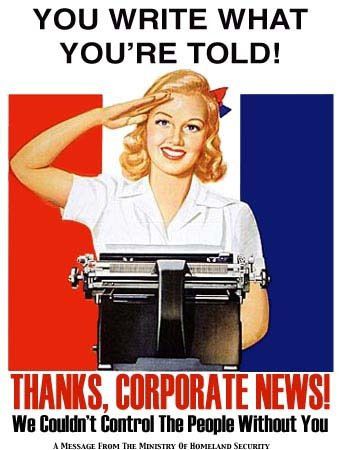
June 20, 2009 "Charting Stocks" -- After being victims of multiple false and propagandistic media campaigns one would think that we would be able to read between the lines when our mainstream media sources act in lockstep with one another in marketing the agenda du jour.
Have we already forgotten the “flowers and candy” which the gracious Iraqi people were going to greet us with? You know, as “Liberators.” The weapons of mass destruction? The fear campaign waged against us to surrender our national treasure to a few Wall Street firms? When the mainstream media moves together in uniform, repeating the same talking points, it’s time to get suspicious, not complacent.
As soon as Ahmadinejad was declared the victor in Iran’s election EACH of our mainstream media sources were ready to cry foul and dismiss the results as an “obvious” fraud (see links below).
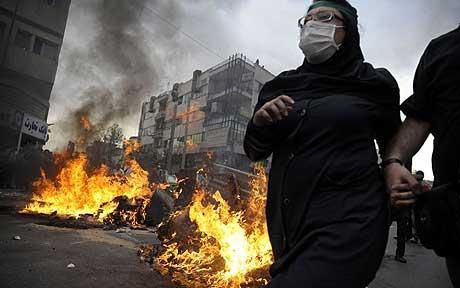 One might think that a functioning media would produce ONE inquisitive reporter that was brave enough to even entertain the idea that Ahmadinejad, the incumbent with extremely high support in the country’s rural and poor areas, actually won. Unfortunately, we don’t have reporters like that in our mainstream media (which is why their readership continues to plummet).
One might think that a functioning media would produce ONE inquisitive reporter that was brave enough to even entertain the idea that Ahmadinejad, the incumbent with extremely high support in the country’s rural and poor areas, actually won. Unfortunately, we don’t have reporters like that in our mainstream media (which is why their readership continues to plummet).
Photo:telegraph
If you doubt that the Iranian election media bombardment was deliberate, ask yourself - Do you know who won last months Panamanian election ? Did you even know there was an election? It’s not your fault if you don’t. Actually, I don’t see how you could know without a functioning media.
Have you heard much about the democratic elections in Saudi Arabia lately? Of course not. They don’t have elections. Any media outrage for the people of Saudi Arabia? A country ruled by one of the most repressive regimes on the planet. But hey, they’re our allies. We don’t talk about them (and certainly won’t tweet it).
What about the 2006 (monitored) democratic election in Gaza in which the people resisted western threats and bribes and elected Hamas as their leader? We responded by punishing the people of Gaza and cutting aid to the region. Well, they committed a supreme crime. They voted the wrong way and must be punished for it. I’m waiting for a sympathetic #GazaElection hashtag on Twitter, though I won’t hold my breathe.
Have you heard ANYTHING from the mainstream media of the democratically elected governments that we REMOVED? The fact is that we don’t care about democratic elections.
Dr. Michael Parenti, is one of the nations leading political scholars. In his book “Against Empire,” Parenti tells us that “The United States has overthrown democratically elected governments in Guatemala, Guyana, The Dominican Republic, Brazil, Chile, Uruguay, Syria, Indonesia, Greece, Argentina, Bolivia, Haiti, and numerous other nations were overthrown by pro-capitalist militaries that were funded and aided by the US national security state.”
The Iran Election hype has nothing to do with democracy and everything to do with effecting US public opinion. Why are “Iranian’s” microblogging in English and on Twitter (which they do NOT use)? According to Mehdi Yahyanejad, manager of a Farsi-language news site based in Los Angeles, “Twitter’s impact inside Iran is zero..here, there is lots of buzz, but once you look . . . you see most of it are Americans tweeting among themselves.” The Alexa rankings confirm that Twitter’s penetration in Iran is nearly 0%.
The United States is the last country on earth that Iran wants attention from. They certainly don’t want us involved in their elections. We’ve already removed a democratically elected government in Iran during the 1953 coup d’etat of Iranian Prime Minister Mohammed Mosaddeq.

I’d venture to guess that most of the people expressing sympathy for the “Iranian Students” on twitter would have a hard time finding Iran on a map. Those that could would quickly realize that on either side Iran’s borders lies 2 countries which we are very familiar with - Iraq and Afghanistan. Both of which are militarily occupied by our armies. Both ruled by our puppet governments.
Photo: l.yimg.com
Ask yourself - If Iran’s army invaded and occupied both Canada and Mexico, would we want their “Help”? Would we find popular Iranian websites and keep them informed of our nation’s vulnerabilities in their native Farsi?
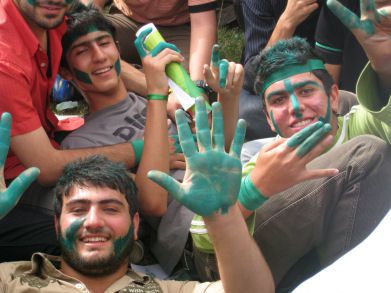
The media campaign, however obvious it is to some of us, has probably been successful. I’ll bet that if you poll the American people today (and they probably will), you’d find that 40-50% would support military involvement in Iran to “Help” with their elections. I’d also assume that those 40-50% are the same people (more or less) who believed we invaded Iraq because of 9-11, another testament to the effectiveness of propaganda marketing.
The Instant “Analysis”:
Reuters Iran’s election result staggers analysts
Hard-liner Mahmoud Ahmadinejad defeated moderate challenger Mirhossein Mousavi by a surprisingly wide margin in Iran’s presidential election, official results showed on Saturday. Mousavi derided the tally as a “dangerous charade.’
Fox News: U.S. Monitoring Iran’s Election Results
U.S. officials are casting doubt over the results of Iran’s election, in which the government declared President Mahmoud Ahmadinejad the winner Saturday…U.S. analysts find it “not credible [Notice the usual UN-NAMED "US Officials and Analysts]
MSNBC: Violence flares as Ahmadinejad wins Iran vote
Riot police battled with protesters Saturday as officials announced that President Mahmoud Ahmadinejad had won a landslide election victory. His opponent denounced the results as ‘treason’….Ahmadinejad had the apparent backing of the ruling theocracy.
CNN: Ahmadinejad wins landslide in disputed election
Iranian President Mahmoud Ahmadinejad has been declared the big winner in the country’s election, but his chief rival and supporters in the Tehran streets are crying foul.
NY Times: Ahmadinejad Is Declared Victor in Iran
The Iranian government declared an outright election victory for President Mahmoud Ahmadinejad on Saturday morning, and riot police officers fought with supporters of the opposition candidate, Mir Hussein Moussavi, who insisted that the election had been stolen.
Time Magazine: Protests Greet Ahmadinejad Win in Iran: ‘It’s Not Possible!
Iran’s Interior Minister announced Saturday that incumbent president Mahmoud Ahmadinejad had won 63.29% of the vote in the nation’s closely watched presidential poll. The announcement, greeted with widespread skepticism by Iranian opposition supporters and by foreign analysts, has brought thousands of people onto the streets where they have encountered a strong police presence and the threat of violence.
Our emphasis
http://www.chartingstocks.net/2009/06/do-we-really-care-about-democracy-iranelection/
IRAN: Tous les articles sur IN/All IN Articles and Videos
Online Journal
Jun 19, 2009

Stephen Kinzer’s book, All the Shah’s Men: An American Coup and the Roots of Middle East Terror tells the story of the overthrow of Iran’s democratically-elected leader, Mohammed Mosaddeq, by the CIA and the British MI6 in 1953. The CIA bribed Iranian government officials, businessmen, and reporters, and paid Iranians to demonstrate in the streets.
The 1953 street demonstrations, together with the Cold War claim that the US had to grab Iran before the Soviets did, served as the US government’s justification for overthrowing Iranian democracy. What the Iranian people wanted was not important.
Today, the street demonstrations in Tehran show signs of orchestration. The protesters, primarily young people, especially young women opposed to the dress codes, carry signs written in English: “Where Is My Vote?” The signs are intended for the Western media -- not for the Iranian government.
More evidence of orchestration is provided by the protesters’ chant, “Death to the dictator, death to Ahmadinejad.” Every Iranian knows that the president of Iran is a public figure with limited powers. His main role is to take the heat from the governing grand ayatollah. No Iranian, and no informed Westerner, could possibly believe that Ahmadinejad is a dictator. Even Ahmadinejad’s superior, Khamenei, is not a dictator, as he is appointed by a government body that can remove him.
The demonstrations, like those in 1953, are intended to discredit the Iranian government and to establish for Western opinion that the government is a repressive regime that does not have the support of the Iranian people. This manipulation of opinion sets up Iran as another Iraq ruled by a dictator who must be overthrown by sanctions or an invasion.
On American TV, the protesters who are interviewed speak perfect English. They are either Westernized secular Iranians who were allied with the Shah and fled to the West during the 1978 Iranian revolution or they are the young Westernized residents of Tehran.
Many of the demonstrators may be sincere in their protest, hoping to free themselves from Islamic moral codes. But if reports of the US government’s plans to destabilize Iran are correct, paid troublemakers are in their ranks.
Some observers, such as George Friedman, believe that the American destabilization plan will fail. However, many ayatollahs feel animosity toward Ahmadinejad, who assaults the ayatollahs for corruption. Many in the Iranian countryside believe that the ayatollahs have too much wealth and power. Amadinejad’s attack on corruption resonates with the Iranian countryside, but not with the ayatollahs.
Amadinejad’s campaign against corruption has brought Grand Ayatollah Hossein Ali Montazeri out against him. Montazeri is a rival to ruling Ayatollah Khamenei. Montazeri sees in the street protests an opportunity to challenge Khamenei for the leadership role.
So, once again, as so many times in history, the ambitions of one person might seal the fate of the Iranian state.
Khamenei knows that the elected president is an underling. If he has to sacrifice Amadinejad’s election in order to fend off Montazeri, he might recount the vote and elect Mousavi, thinking that will bring an end to the controversy.
Khamenei, solving his personal problem, would play into the hands of the American-Israeli assault on his country.
On the surface, the departure of Ahmadinejad would cost Israel and the US the loss of their useful “anti-Semitic” boogeyman. But in fact it would play into the American-Israeli propaganda. The story would be that the remote, isolated, Iranian ruling ayatollah was forced by the Iranian people to admit the falsity of the rigged election, calling into question rule by ayatollahs who do not stand for election.
Mousavi and Ayatollah Montazeri are putting their besieged country at risk. Possibly they believe that ridding Iran of Amadinejad’s extreme image would gain Iran breathing room.
If Mousavi and Montazeri succeed in their ambitions, one likely result would be a loss in Iran’s independence. The new rulers would have to continually defend Iran’s new moderate and reformist image by giving in to American demands. If the government admits to a rigged election, the legitimacy of the Iranian Revolution would be called into question, setting up Iran for more US interference in its internal affairs.
For the American neoconservatives, democratic countries are those countries that submit to America’s will, regardless of their form of government. “Democracy” is achieved by America ruling through puppet officials.
The American public might never know whether the Iranian election was legitimate or stolen. The US media serves as a propaganda device, not as a purveyor of truth. Election fraud is certainly a possibility -- it happens even in America -- and signs of fraud have appeared. Large numbers of votes were swiftly counted, which raises the question whether votes were counted or merely a result was announced.
The US media’s response to the election was equally rapid. Having invested heavily in demonizing Ahmadinejad, the media are unwilling to accept election results that vindicate Ahmadinejad and declared fraud in advance of evidence, despite the pre-election poll results published in the June 15 Washington Post, which found Ahmadinejad to be the projected winner.
There are many American interest groups that have a vested interest in the charge that the election was rigged. What is important to many Americans is not whether the election was fair, but whether the winner’s rhetoric is allied with their goals.
For example, those numerous Americans who believe that both presidential and congressional elections were stolen during the Karl Rove Republican years are tempted to use the Iranian election protests to shame Americans for accepting the stolen Bush elections.
Feminists take the side of the “reformer” Mousavi.
Neoconservatives damn the election for suppressing the “peace candidate” who might acquiescent to Israel’s demands to halt the development of Iranian nuclear energy.
Ideological and emotional agendas result in people distancing themselves from factual and analytical information, preferring instead information that fits with their material interests and emotional disposition.
The primacy of emotion over fact bids ill for the future. The extraordinary attention given to the Iranian election suggests that many American interests and emotions have a stake in the outcome.
email him] was Assistant Secretary of the Treasury during President Reagan’s first term. He was Associate Editor of the Wall Street Journal. He has held numerous academic appointments, including the William E. Simon Chair, Center for Strategic and International Studies, Georgetown University, and Senior Research Fellow, Hoover Institution, Stanford University. He was awarded the Legion of Honor by French President Francois Mitterrand. He is the author of Supply-Side Revolution : An Insider’s Account of Policymaking in Washington; Alienation and the Soviet Economy and Meltdown: Inside the Soviet Economy, and is the co-author with Lawrence M. Stratton of The Tyranny of Good Intentions : How Prosecutors and Bureaucrats Are Trampling the Constitution in the Name of Justice. Click here for Peter Brimelow’s Forbes Magazine interview with Roberts about the recent epidemic of prosecutorial misconduct.
Our emphasis
http://onlinejournal.com/artman/publish/article_4823.shtml
IRAN: Tous les articles sur IN/All IN Articles and Videos
Update 21/06/09
-
- Iran faces greater risks than it knows By Paul Craig Roberts
-
- Kissinger and the Iranian "Crisis" (19 June 2009, 1' 23)
-
-
- La CIA et le laboratoire iranien: De Mossadegh à Ahmadinejad
-
Does U.S. poll rule out fraud in Iran? + video (TheRealNews) -
Sarkozy et les medias préparent l'opinion à la guerre contre l'Iran depuis 2007 -

L’ukraine, maillon des «révolutions colorées» fomentées par les usa

Iran 1953: cia operation ajax sowing the seeds of blowback (videos)
The "bomb iran" contingent's newfound concern for the iranian people

Une guerre mondiale au secours de l'empire américain
Obama: US “meddling” in Iran should not be seen By Bill Van Auken
Sarkozy et les medias préparent l'opinion à la guerre contre l'Iran depuis 2007

IRAN 1953 : CIA - Opération Ajax : renversement du président Mossadegh
La france en première ligne en cas d'agression contre l'iran
Elections en iran : et si ahmadinejad avait vraiment gagné?
Iran: ahmadinejad, les raisons d'une victoire
The great, international, truly demonic iran threat by william blum
What a war on iran might look like [photo essay]
Attacking iran for israel? By by ray mc govern
Iran : pourquoi washington attaquera téhéran

Iran: "pour l'instant, on prépare le public" par john pilger
'israel may target iran next' former us defense secretary
D’autres signes d’une guerre américaine contre l’iran
Iran:fears of an air strike increase, little opposition heard
Iran-the words no us candidate dare say: nuclear war
Is gates undermining another opening to iran?
Iran : hillary clinton votes for war - again !
Iran: the road to armageddon? Felicity arbuthnot
Catastrophe annoncée: le bombardement de l’iran
Plan for iran attack starts with israeli missile strike
Israël prêt pour une offensive militaire contre l’iran
Le grand mensonge: l'iran est une menace – scott ritter
Leading americans ask military to refuse to attack iran and start a global catastrophe
D'éminents citoyens des états-unis demandent aux militaires de refuser d'attaquer l'iran
War clouds loom ever more menacingly over iran
Du chaos irakien à l’escalade contre l’iran - alain gresh
U.S: call to "resist and deter" nuclear iran gains key support
Israel still considering strike on iran despite report
Iran:bush répète que «toutes les options sont sur la table»
Will the military halt an iran attack? (10/10/07)
Les ultras préparent la guerre contre l’iran
Military resistance forced shift on iran strike
Can we prevent an iran attack?
Bush administration war plans directed against iran
Scott ritter on "target iran
The administration’s plan for iran by seymour m. Hersh
Planned us israeli attack on iran, by pr chossudovsky
The big lie: ‘iran is a threat’ by scott ritter
More signs of israeli/us preparations for attacking iran
Iran : exercices militaires de grande envergure prévus
'israel may target iran next' former us defense secretary
Authors of heavily-quoted poll changed their conclusion to support validity of Ahmadinejad landslide.
Western media, along with thousands of Iranians protesting around the world, have formed a rough consensus over the six days since Iran's Presidential Election that Ahmadinejad's victory was the result of widespread fraud. However, a recent Op-Ed in the Washington Post* references a rare public opinion poll in suggesting that the election may indeed have been fair.
http://therealnews.com/t/index.php?option=com_content&task=view&id=31&Itemid=74&jumival=3884&updaterx=2009-06-18+03%3A28%3A10
The Iranian People Speak:
* http://www.washingtonpost.com/wp-dyn/content/article/2009/06/14/AR2009061401757.html
Réseau Voltaire
Par Thierry Meyssan
| La nouvelle d’une possible fraude électorale s’est répandue à Téhéran comme une traînée de poudre et a poussé dans la rue les partisans de l’ayatollah Rafsanjani contre ceux de l’ayatollah Khamenei. Ce chaos est provoqué en sous-main par la CIA qui sème la confusion en inondant les Iraniens de messages SMS contradictoires. Thierry Meyssan relate cette expérience de guerre psychologique.
Notes [1] « Discours à l’université du Caire », par Barack Obama, Réseau Voltaire, 4 juin 2009. [2] « BP-Amoco, coalition pétrolière anglo-saxonne », par Arthur Lepic, Réseau Voltaire, 10 juin 2004. [3] Sur le coup de 1953, l’ouvrage de référence est All the Shah’s Men : An American Coup and the Roots of Middle East Terror, par Stephen Kinzer, John Wiley & Sons éd (2003), 272 pp. Pour les lecteurs francophones, signalons le dernier chapitre du récent livre de Gilles Munier, Les espions de l’or noir, Koutoubia éd (2009), 318 pp. [4] « La société iranienne paralysée », par Thierry Meyssan, Réseau Voltaire, 5 février 2004. [5] « Taliban using Skype phones to dodge MI6 », par Glen Owen, Mail Online, 13 septembre 2008. [6] « NSA offering ’billions’ for Skype eavesdrop solution », par Lewis Page, The Register, 12 février 2009. [7] « Taliban Threatens Cell Towers », par Noah Shachtman, Wired, 25 février 2008. [8] Jawwal est la marque de PalTel, la société du milliardaire palestinien Munib Al-Masri. [9] Jibran Bassil est un des principaux leaders du Courant patriotique libre, le parti nationaliste de Michel Aoun. [10] « Freed Lebanese say they will keep fighting Israel », Associated Press, 17 juillet 2008. [11] L’auteur de cet article a été témoin de ces appels. On pourra aussi consulter « Strange Israeli phone calls alarm Syrians. Israeli intelligence services accused of making phone calls to Syrians in bid to recruit agents », Syria News Briefing, 4 décembre 2008. [12] Cité dans « Ahmadinejad won. Get over it », par Flynt Leverett et Hillary Mann Leverett, Politico, 15 juin 2009. [13] « U.S. State Department speaks to Twitter over Iran », Reuters, 16 juin 2009. [14] « Social Networks Spread Defiance Online », par Brad Stone et Noam Cohen, The New York Times, 15 juin 2009. Thierry Meyssan analyste politique, fondateur du Réseau Voltaire. Dernier ouvrage paru : L’Effroyable imposture 2 (le remodelage du Proche-Orient et la guerre israélienne contre le Liban). | ||
WSWS
18 June 2009
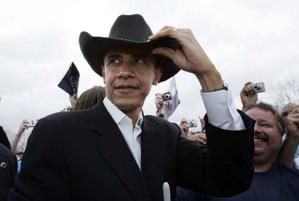
Amid rhetoric about his commitment to the “universal values” of democratic processes and free speech, US President Barack Obama made one unintentionally revealing statement on Iran Tuesday. “It’s not productive, given the history of the US-Iranian relationship, to be seen as meddling,” he said.
The statement was meant as an explanation of the Obama administration’s failure to join the Iranian opposition led by the defeated candidate Mir Hossein Mousavi in explicitly denouncing last Friday’s presidential election as a “fraud” and as a defense against criticism from the Republican right in the US.
Before Obama made the statement, his Republican opponent in the 2008 election, Arizona Senator John McCain condemned the administration’s reticence, declaring that Obama “should speak out that this is a corrupt, flawed sham of an election and that the Iranian people have been deprived of their rights.”
Obama’s choice of words, however, spoke volumes. The US should not “be seen as meddling”; as for the meddling itself, that is clearly another matter.
The president’s reference to “the history of the US-Iranian relationship” refers to the 1953 CIA-backed coup that overthrew the country’s nationalist Prime Minister Mohammad Mossadeq, who two years earlier had begun to nationalize Iran’s oil industry, until then controlled by Britain.
The coup ushered in the 26-year, US-backed rule of the Shah and SAVAK, his brutal secret police, which ended only with the Iranian Revolution of 1979.
Nearly one year after the coup, in August 1954, the New York Times published an editorial succinctly explaining the motives behind the CIA action: “Underdeveloped countries with rich resources now have an object lesson in the heavy cost that must be paid by one of their number which goes berserk with fanatical nationalism,” the paper editorialized. “It is perhaps too much to hope that Iran’s experience will prevent the rest of Mossadeqs in other countries, but that experience may at least strengthen the hands of more reasonable and far-seeing leaders.”
The obvious question is: what fundamentally has changed in “the US-Iranian relationship” since those days? Washington—under Obama as under Bush—is continuing two colonial-style wars in Iraq and Afghanistan, i.e., on Iran’s western and eastern borders, that have claimed the lives of over one million people. The aim of these wars is the same as the objective of the coup of 1953—control of “rich resources” and the pipeline routes for extracting them from the oil-rich Persian Gulf and Central Asia.
Behind the statements of concern about the elections and the subsequent repression in Iran, US imperialism is prepared to carry out even greater crimes against the Iranian people.
Washington does not want to be seen as playing a direct role in seeking to destabilize the Iranian government for fear that it would provoke a popular backlash because of this history. While US agencies work covertly, the Obama administration leaves the direct propaganda operations to the press and to its European allies.
The most prominent role has been played by the New York Times, the same newspaper that was decisive in promoting the phony “weapons of mass destruction” pretext for the war against Iraq. In 1953, the Times not merely endorsed the coup in Iran editorially; through its correspondent, Kenneth Love, it worked intimately with those who organized it.
In the current crisis, without citing any objective evidence, the Times reported as fact the Iranian opposition’s claims that the election was rigged, that the 62.6 percent victory declared for incumbent President Mahmoud Ahmadinejad was impossible and that Mousavi had been the real victor. This version of events has generally been echoed by the rest of the media.
Also serving as propaganda agents for US imperialism’s destabilization operation in Iran are the pseudo-lefts around the Nation magazine, which under the Obama administration has emerged every bit as much a house organ of US imperialism as the Times itself. On Wednesday it posted an article by its foreign policy correspondent Robert Dreyfuss, who acknowledged, “I’m biased. I support the Green Revolution,” referring to the forces gathered behind Mousavi.
He then went on to portray these forces in fairly objective terms. “The anti-Ahmadinejad coalition is deep and broad,” he wrote. “It includes conservative, Old Guard founders of the Islamic Republic, who view Ahmadinejad with disdain ...; the large and growing majority of Iranian clerics and senior ayatollahs, many of whom have long viewed the Leader, Ayatollah Ali Khamenei, as an upstart and usurper ...; nearly the entirety of Iran’s business class, especially those involved in high-tech, aviation, oil and gas, and heavy industry, who blame Ahmadinejad for his catastrophic mismanagement of the economy” as well as so-called “reformists” like former President Khatami and Mousavi, and “the educated elite.”
What is described here are the wealthiest and most privileged layers of Iranian society, which together constitute a decisive layer of the country’s ruling political establishment. What is noticeably missing from this “coalition” is the working class and the rural poor, the overwhelming majority of the Iranian population.
In all of the giddy commentary in the media about a “twitter revolution,” there has been no suggestion by anyone that Mousavi enjoys the support of the workers and the most oppressed layers of Iranian society.
What is the Obama administration attempting to accomplish with its covert intervention—loudly promoted by its erstwhile “liberal” and “left” supporters—in the Iranian election?
It is not aiming for “regime change” along the lines of Iraq. Certain lessons have been learned from the Bush administration’s debacle, most critically that disbanding the military and the security forces in a country targeted for US domination is a fatal mistake. These are the forces upon which imperialism must rely for imposing policies that will spell intensified oppression for the majority of the population and for suppressing any genuine revolutionary movement of the masses.
What Washington wants is to effect a change in personnel at the top of the Iranian regime that would bring about a change in policy favoring US geo-strategic interests in Iran and the surrounding region. In Mousavi and those backing him, the Obama administration sees the possibility of shifting Tehran toward more open collaboration in its wars in Iraq and Afghanistan, while promoting “free market” economic policies that would open up the country for exploitation by US-based oil conglomerates and other transnationals.
The reasons for Washington’s apparent caution is not just the history of US-Iranian relations, but also the fear that the fissures within the ruling circles in Iran and the mobilizations in the streets could get out of hand. Despite their size, the mass demonstrations in Tehran and elsewhere have been dominated by the better-off and better-educated sectors of Iranian society. If broader social forces were to come into struggle against the government, and Mousavi, his billionaire backer Ayatollah Ali Akbar Hashemi Rafsanjani and others in the ruling establishment were to lose control, the US could face the threat of a new Iranian Revolution.
It is for this more fundamental struggle that Iranian workers, students and youth must prepare. The present political confrontation is taking place within a narrow circle of the Iranian ruling elite, whose interests and aspirations are totally at odds with those of Iranian working people. Neither the repressive right-wing demagogue Ahmadinejad nor the well-heeled “reformers” around Mousavi offer any way forward for the working class.
Continue:
Présentation
- : internationalnews
-
/fdata%2F1072291%2Favatar-blog-1013556606-tmpphp3z2c2w.gif)
- : Un site d'information et de réflexion sur l'actualité internationale, le nouvel ordre mondial, la géostratégie, la propagande, l'impérialisme, le nucléaire, l'économie, l'environnement et la culture, illustré de documentaires. Site géré par des journalistes bénévoles, sans aucune obédience politique, religieuse ou autre.
- Contact
STOP TAFTA !
Rechercher
Dossiers les plus consultés
(Articles issus de différentes catégories)
WAR IS PEACE
Derniers Articles
- Hommage à Tarek Aziz, mort à petit feu dans les geoles irako-américaines
- Boeuf bodybuildé, poulet nu, clonage... (reportage)
- Le Bio: un business comme les autres (reportage)
- Revolucionarios - Film sur Cuba (vostfr 57')
- L’antisémitisme: de la tragédie à la farce par Jean Bricmont/Silvia Cattori
- Poursuite de la destruction du patrimoine de l'Humanité par les Etats-Unis: maintenant Hatra et Nimrud - Jules Dufour
- Des missiles à l’uranium appauvri contre l’Etat islamique en Irak
- Jean Bricmont sur la Crise ukrainienne et les accords de Minsk (vidéo)
- Obama recherche un chèque en blanc pour poursuivre sa guerre permanente
- Comment les U.S.A veulent avoir "la peau" de POUTINE, par Pierre Jovanovic (vidéo 7')
Parmi plus de 6 800 documents
Toutes Les Catégories
- Rock and Roll Jazz Folk and Blues (505)
- USA (342)
- Environnement-Environment (285)
- Cinema (275)
- Crimes de Guerre-Torture-War Crimes (268)
- France (266)
- Nouvel Ordre Mondial-New World Order (258)
- 3e Guerre mondiale-World War III (246)
- Santé-Health (236)
- Music and Politics (235)
- Medias-Propaganda (230)
- Classical Music-Arts (229)
- Documentaires-Must-see Documentaries (229)
- Palestine-Israël-Middle East (220)
- Géopolitique-Geopolitics (217)
- Economie-Economy (188)
- Amérique latine-Latin America (184)
- Humour noir-Black Humor (167)
- Iraq (166)
- Alimentation-Food (158)
- Nucléaire Civil-Nuclear Energy (152)
- Tiers-Monde-Third World and NWO (130)
- Libertés publique-Big Brother-Civil Liberties (124)
- Resistances (124)
- Europe (117)
- Changement climatique-Climate Change (114)
- Protection Animale-Animals' rights (109)
- Afrique-Africa (105)
- Histoire-History-Archeologie (96)
- Iran (96)
- Celtic Music (84)
- Chanson française (84)
- OGM-GMO (83)
- Nucléaire Militaire-Nuclear Weapons (70)
- Sciences sociales-Social Sciences (63)
- Afghanistan (58)
- Livres-Books (57)
- Depleted Uranium -Uranium appauvri et autres ADM (52)
- RALPH NADER 2008 CAMPAIGN (50)
- Science-Weird science and Technology (41)
- Energies renouvelables-Renewable Energy (34)
- Peuples indigènes-Natives Rights Struggle (30)
- Portraits (28)
- Balkans (25)
- Energie-Energy (24)
- Biodiversité (23)
- Femmes-Women rights (22)
- Asie-Asia (21)
- Religion (20)
- Nanotechnologies (13)


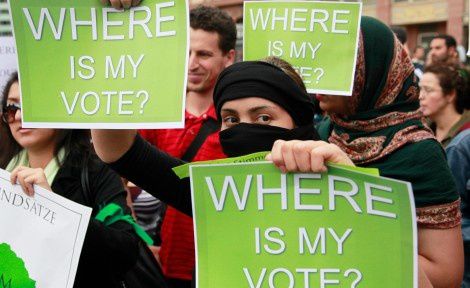





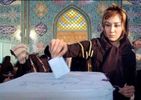


![What a war on iran might look like [photo essay]](http://img.over-blog.com/150x100-ffffff/1/07/22/91//Lebanon.jpg)
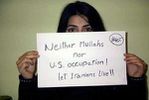
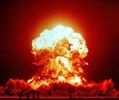


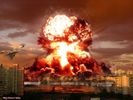

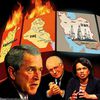













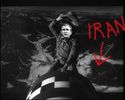



























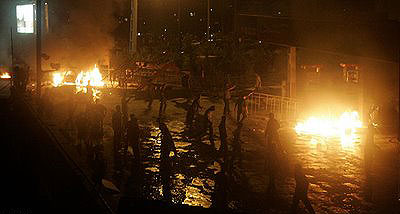

![Géopolitique : Union transatlantique, la grande menace, par Alain De Benoist [tribune libre] Géopolitique : Union transatlantique, la grande menace, par Alain De Benoist [tribune libre]](http://www.breizh-info.com/wp-content/uploads/2014/06/tafta.jpg)


